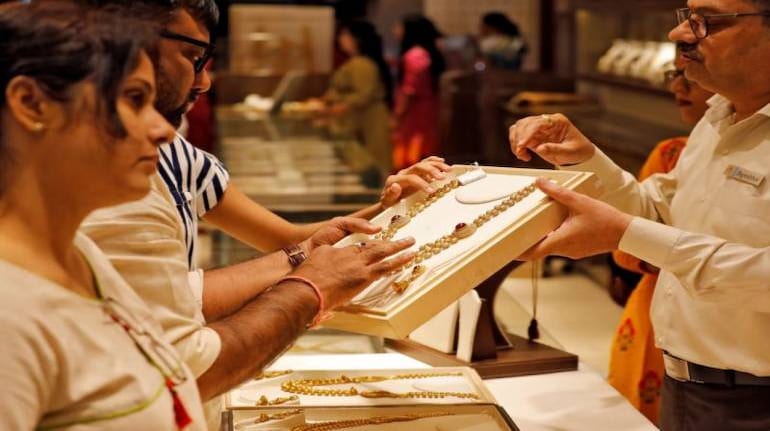



The stock price of Muthoot Finance has just hit its lifetime high. For a lending business in the midst of a global pandemic, this seems downright bizarre – most lenders worldwide are being crushed under the weight of expected credit losses. You’d be forgiven for thinking Muthoot’s stock market performance is a fluke, but you’d also be overlooking a key differentiator: gold.
Along with China, India is one of the two largest end-use consumers of gold in the world. In India, gold is considered auspicious – families buy gold for and on festive occasions, and treat it as an absolutely essential commodity for their daughters’ weddings. This is true even (if not particularly) for those living in rural areas. According to a recent article in the Economic Times, rural India accounts for 65 percent of household gold. Gold is passed down through generations (often in the form of ‘streedhan’) and there is an emotional attachment to it that isn’t found elsewhere in the world.
The pandemic has not slowed our appetite for buying gold. A prominent jewellery business reports that although the wedding season has been deferred, people have been buying gold coins to exchange for jewellery at a future date. People are looking to lock in current prices despite the 30 percent year-to-date appreciation of gold already - the underlying assumption is of course that people expect prices to rise further. This is consistent with studies showing that gold prices have positive price elasticity.
A boon from credit squeeze
Gold finance businesses such as Muthoot are currently benefitting from a combination of Indians’ affinity for gold and banks’ pandemic-induced risk aversion. In this time of low confidence and high uncertainty, banks and more traditional lending businesses (outside of gold finance) have been struggling with credit losses and provisions, and have committed to their shareholders that they will institute more stringent underwriting standards to maintain strong asset quality levels. This is resulting in a difficulty in accessing credit, particularly for those at the bottom of the pyramid.
During this time, particularly where other sources of income have dried up, borrowers are seeking loans against their gold. Gold loans are easy to take out, can be availed fairly quickly, and the rise in gold prices globally means borrowers can get better value for their gold. They’re particularly useful as bridge loans and towards financial inclusion as the loan amounts and tenor are restricted by the RBI.
Gold financiers are protected too, as they must maintain a loan-to-value ratio (LTV) of 75 percent on the loan amount, which serves as a buffer against any major price fluctuations. In any case, gold is perhaps the strongest security at the moment – arguably stronger than houses or cars in the current environment. At the moment, repossession of a house or car is far more cumbersome and saleability is far lower than that of gold. Gold is often referred to as a ‘safe haven’ given its proven track record as a store of value and hedge against inflation, particularly in times of uncertainty.
More traditional lenders are recognising the potential to profit off Indian household gold. Indeed, reports of various universal banks and small finance banks exploring this market have started making the news recently. And according to recent RBI data – they need to. In April 2020, the RBI reported that banks’ aggregate retail loan book shrank by the biggest month-on-month margin in 13 years.
A commodity stockpile
In India’s ‘unlocking’, it is the green and orange zones which are reopening first. Many of these are in rural or semi-urban areas, as urban areas have been worst affected by the pandemic. If lenders are able to seize the opportunity of leveraging gold loans to rebuild their retail loan books, they may be able to jump-start retail spending which, along with the lenders themselves benefitting, could be instrumental to India’s recovery story. The stockpile of gold in India could be successfully monetised to benefit lenders, borrowers and the economy at large.
But it is important to note that gold does not typically move in tandem with other asset classes, the economy, or anything in particular. Right now, gold is the preferred mode of diversification for bearish savers, but this may well shift as global economies reopen with a stronger risk appetite than many previously envisioned since it has a negative/low correlation with other asset classes.
Even if demand continues to remain strong in India, the price of gold in India is a function of global prices. If the price falls sharply, gold loan providers may no longer be willing to lend at attractive LTV levels. As the economic effect of the lockdown slowly wears off, there may be a revival in other asset classes which could pose a risk to going long on gold or gold finance companies. For traditional lenders, however, a calibrated approach to increasing exposure to gold lending might be the best way to bring their retail loan book back up -- a golden opportunity, if you will.
Stuti Johri is an investment analyst at Trivantage Capital Management India Private Limited. The views are personal.
Discover the latest Business News, Sensex, and Nifty updates. Obtain Personal Finance insights, tax queries, and expert opinions on Moneycontrol or download the Moneycontrol App to stay updated!
Find the best of Al News in one place, specially curated for you every weekend.
Stay on top of the latest tech trends and biggest startup news.